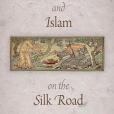《Buddhism and Islam on the Silk Road》是University of Pennsylvania Press出版的圖書,作者是Johan Elverskog
基本介紹
- 中文名:Buddhism and Islam on the Silk Road
- 作者:Johan Elverskog
- 出版社:University of Pennsylvania Press
- 出版時間:2010年3月25日
- 頁數:352 頁
- 定價:69.95 美元
- 裝幀:Hardcover
- ISBN:9780812242379
內容簡介
Elverskog has produced, for the very first time, a detailed account of the long-term interaction of Buddhism and Islam that should be welcomed by all students of Eurasian history. His approach to this issue is informed, balanced, and insightful. He understands that it is important to recognize the diversity within both religions, and that their encounters were not clashes betwe...(展開全部) Elverskog has produced, for the very first time, a detailed account of the long-term interaction of Buddhism and Islam that should be welcomed by all students of Eurasian history. His approach to this issue is informed, balanced, and insightful. He understands that it is important to recognize the diversity within both religions, and that their encounters were not clashes between monolithic belief systems. Their relationship ran the gamut between religious violence and fanaticism to cultural exchange and tolerance.—Thomas T. Allsen, author of The Royal Hunt in Eurasian History This is the most thorough treatment I have seen of the historical relationship between Buddhism and Islam. Elverskog skillfully and often entertainingly corrects many longstanding stereotypes about both religions, and richly demonstrates the complexity of their historical interaction with each other. This book is thoughtful, its arguments well supported, and its style very accessible. —Richard Foltz, author of Religions of the Silk Road In the contemporary world the meeting of Buddhism and Islam is most often imagined as one of violent confrontation. Indeed, the Taliban's destruction of the Bamiyan Buddhas in 2001 seemed not only to reenact the infamous Muslim destruction of Nalanda monastery in the thirteenth century but also to reaffirm the stereotypes of Buddhism as a peaceful, rational philosophy and Islam as an inherently violent and irrational religion. But if Buddhist-Muslim history was simply repeated instances of Muslim militants attacking representations of the Buddha, how had

